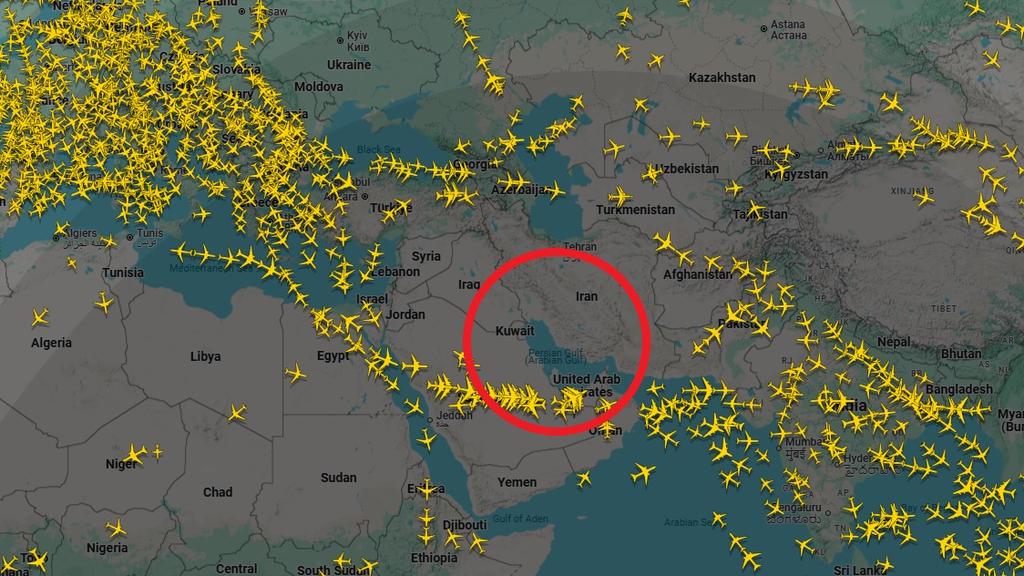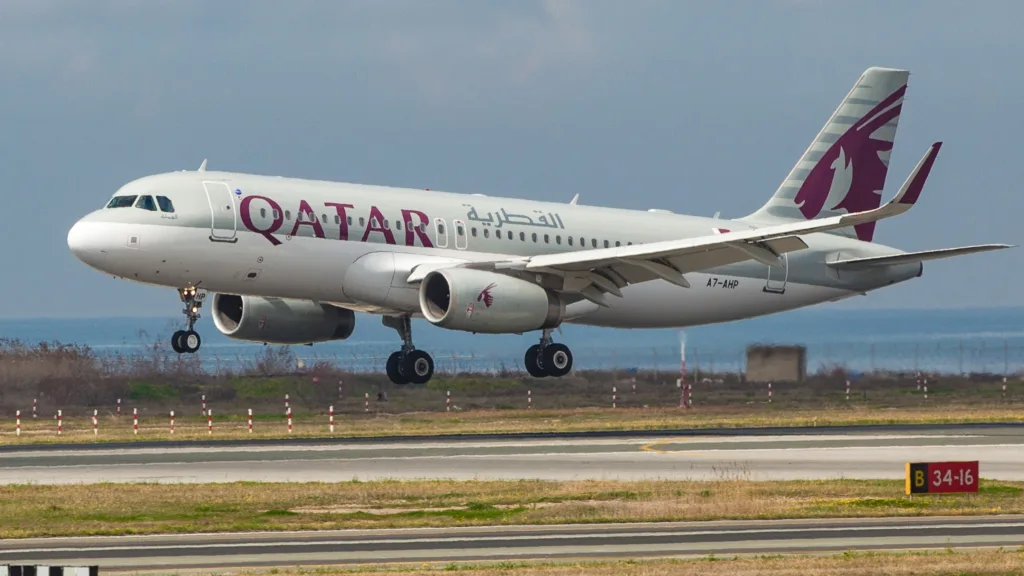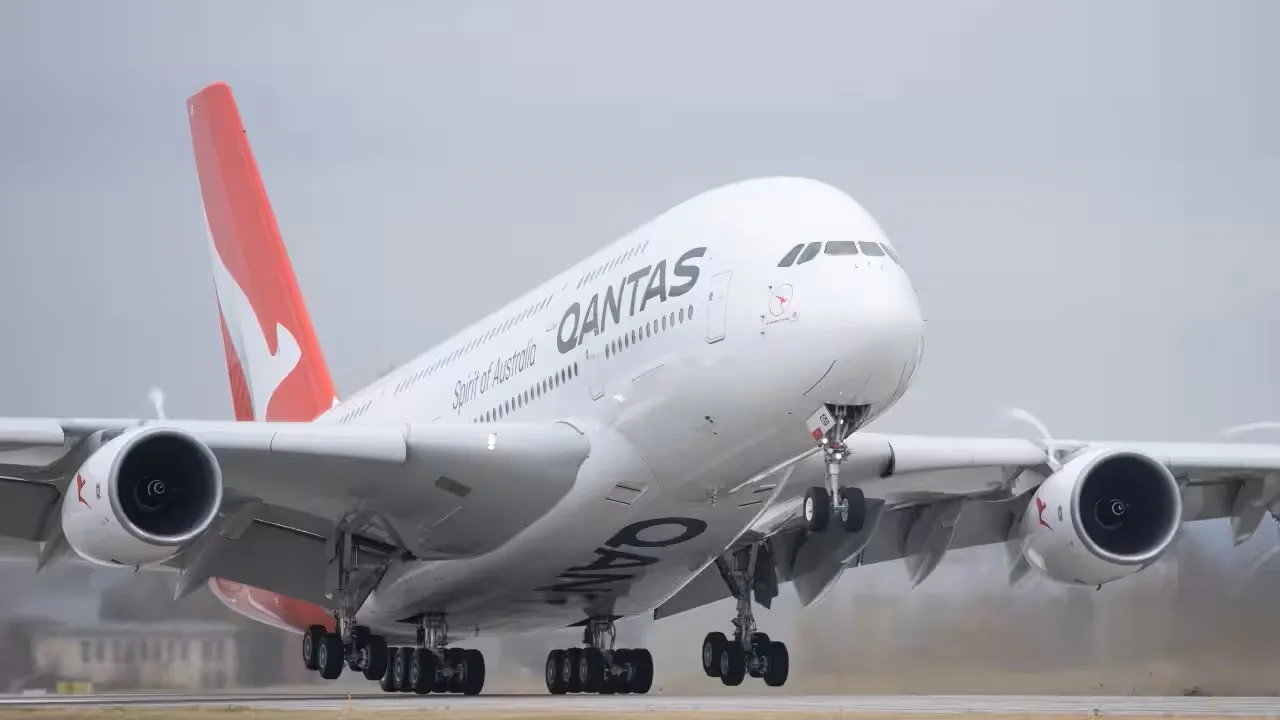Qantas has been forced to divert and turn back multiple long-haul flights due to the escalating conflict in the Middle East, after Iran launched a missile strike on the US Al Udeid Airbase in Qatar – the largest American military base in the region.
The missile strike, carried out by Iran’s Revolutionary Guard on Monday evening local time, was dubbed “Operation Besharat al-Faith,” and described by Tehran as a “mighty and victorious” response to earlier US military action.
The United States had targeted three Iranian nuclear facilities overnight from Saturday to Sunday, following more than a week of deadly missile exchanges between Iran and Israel.
In response to Iran’s missile strike on the US base in Qatar, US President Donald Trump downplayed the attack as “very weak,” thanked Iran for giving early notice, and urged both sides to pursue peace, saying he would “enthusiastically encourage Israel to do the same.”
Travel disrupted:
The unfolding conflict has disrupted international air travel through key aviation hubs like Doha and Dubai. Qantas confirmed its Perth–Paris flight (QF33) was turned back mid-air, and the Perth–London flight (QF9) was diverted to Singapore. Flights QF1 and QF2 via Sydney and Singapore to London are currently operating on schedule.
Although Qantas had already been avoiding Iranian and Iraqi airspace since 12 June, the temporary closure of Qatari airspace compounded challenges for its ultra-long-haul services.

Qatar Airways suspended flights briefly but resumed operations within hours, cautioning travellers of “significant delays.”
“Our focus at this time is to help our passengers return home or reach their onward journey safely and smoothly,” Qatar Airways said in a statement. “We have also deployed additional ground staff… to assist affected passengers.”
The disruption comes at a critical time for Greek Australians, many of whom travel to Europe during the peak northern summer period to visit family and enjoy holidays.
Warnings for Australian travellers:
Australians flying to Europe this peak summer season via the Middle East have been warned to prepare for airspace closures, delays, and potential cancellations.
Smartraveller, run by Australia’s Department of Foreign Affairs and Trade, recently upgraded its travel advice for Qatar to “exercise a high degree of caution.”
“The security situation in the Middle East is unpredictable and could deteriorate further with little warning,” the advisory warns.
The conflict comes at a particularly difficult time for Virgin Australia and its customers, as the airline has only just resumed long-haul international flights in partnership with Qatar Airways. Sydney–Doha services commenced on 12 June, with Brisbane–Doha following on 19 June. Flights between Perth and Doha are due to begin on 26 June, and Melbourne–Doha services are scheduled for December.

Travel insurance premiums are also expected to rise for Australians transiting through the region.
Despite the disruptions, Dean Long of the Australian Travel Industry Association urged calm in a statement to news.com.au: “Travellers shouldn’t panic or cancel unnecessarily,” he said. “The one thing we learned through Covid is don’t cancel as it reduces the number of rights you have. Let the airline make that decision.”
Mr Long also advised customers not to contact airlines or agents unless they are due to travel within the next three days, so priority could be given to those with imminent departures.
Airlines respond globally:
Global carriers have similarly adjusted operations. Emirates continues flying using routes distanced from conflict zones but warned of possible delays.
Singapore Airlines has suspended its Dubai services until at least Thursday.
United Airlines flagged potential disruptions on Dubai routes through 3 July, and on Tel Aviv services through 1 August, with flexible rebooking options now in place.
Air Canada has suspended its direct Toronto–Dubai service, advising passengers to connect via Europe where possible.
American Airlines is waiving change fees for bookings to Doha between 19 June and 20 July. Lufthansa and affiliates (Swiss, Austrian) have halted Middle East flights until 30 June, while Air France has suspended all flights to Saudi Arabia, the UAE, and Tel Aviv until 14 July.
Source: news.com.au
